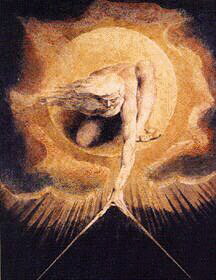Entstehung des Lebens
The
Origin of Life
David N. Menton - mac@creation.org
One of the most fundamental axioms of biology is that all life
comes from pre-existing life. In 1650, Francesco Redi,
an Italian physician, proved that maggots come from living
flies and not from lifeless meat as was widely believed. This
was a serious blow to spontaneous generation, but when
bacteria were later discovered, it was thought that at least
micro-organisms might arise from non-life. This notion too was
finally laid to rest in 1864 by the great scientist (and
creationist) Louis Pasteur, who demonstrated that bacteria can
only come from living bacteria.
Most
evolutionists are dead certain that life evolved by chance (without
divine intervention) from non-living chemicals through a
process called "chemical evolution."
Evolutionists speculate that life gradually evolved from mere
hydrogen in a series of stages:
- The first
stage began about 15 billion years ago with the "Big
Bang" which produced an expanding cloud of hydrogen
gas -- all else was void.
- During stage
two it is believed that simple chemicals from stage one
formed the small organic molecules essential to
life such as sugars, amino acids and nucleotides. In 1953,
Miller and Urey claimed to "simulate" the
evolution of some of these organic molecules from methane
and ammonia using apparatus and conditions designed to
achieve the desired result.
- Stage three
in chemical evolution is supposed to have involved the
stringing together of small organic molecules into long
chain-like molecules called polymers. The most
important biological polymers are starches (polymers of
sugars), proteins (polymers of amino acids), and DNA (polymers
of nucleotides).
- The final
stage of chemical evolution involves the chance
transformation of organic molecules and polymers into the
unfathomably complex machinery of living cells.
Here
evolutionary speculation is so unrestrained by evidence, or
even plausibility, that it fails to merit serious
consideration. The biochemist Dr. David Green pretty well
summed it up when he said in his book Molecular Insights
into the Living Process:
"the
macromolecule-to-cell transition is a jump of fantastic
dimensions, which lies beyond the range of testable
hypothesis. In this area all is conjecture. The available
facts do not provide a basis for postulating that cells
arose on this planet."
Evolutionists
have tried to get around this problem by invoking long periods
of time in the hope that, given enough time, virtually
anything is possible -- except, of course, special creation.
Sir Fred Hoyle,
the man who named the "Big Bang" theory, has
recently concluded that the origin of life by chance is an
absurd idea. In his book Evolution From Space,
Hoyle insists that it is obvious that the complexity of life
demands an intelligent designer, possibly even (heaven forbid!)
God. According to Hoyle:
"Once
we see, however, that the probability of life originating at
random is so utterly minuscule as to make it absurd, it
becomes sensible to think that the favorable properties of
physics on which life depends are in every respect
deliberate. ... It is therefore almost inevitable that our
own measure of intelligence must reflect... higher
intelligences... even to the limit of God... such a theory
is so obvious that one wonders why it is not widely accepted
as being self-evident."
http://www.gennet.org/Metro02.htm
|




